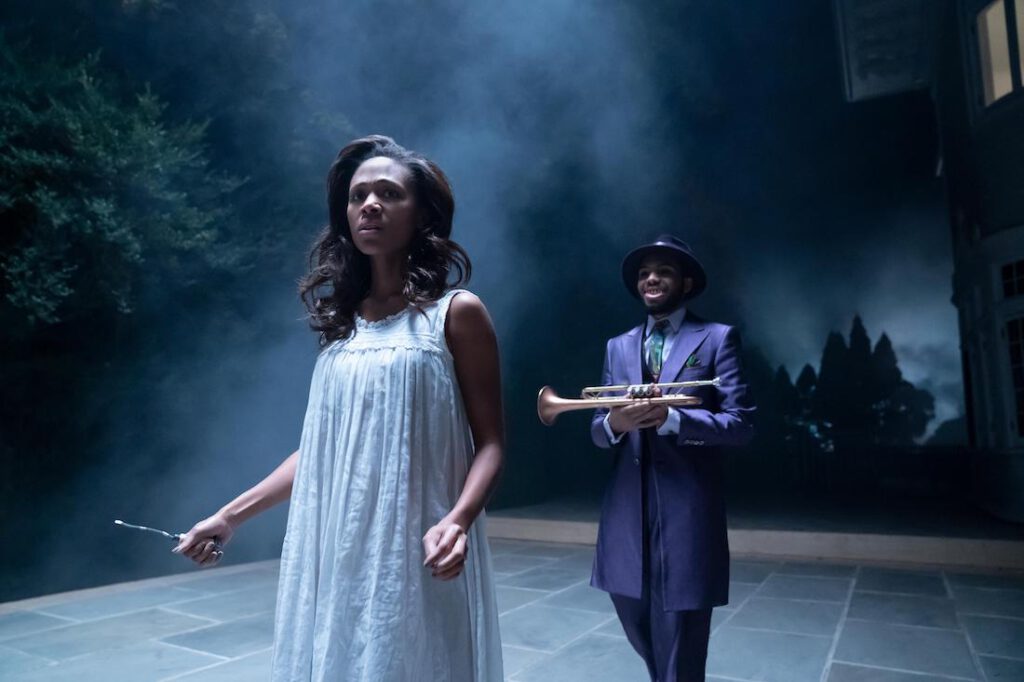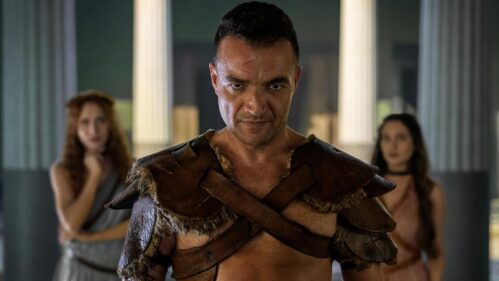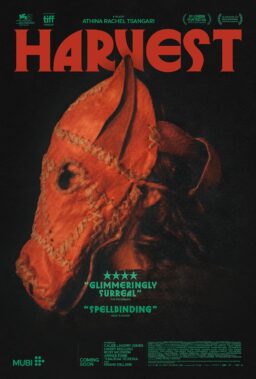For all of its fantasies, dreams of prosperity, and pursuits of happiness, “Monsterland” looks at America through a lens that alternates between bleak and dreary. The people in this eight-episode Hulu anthology are tired, lonely, abused, underpaid, underrepresented; they’ve been taken advantage of, poisoned, and left to fend for themselves in their hellish circumstances. It’s not uncommon for this show to flash back to earlier times, depicting the juncture of a life-changing decision. And it’s not uncommon for a monster only to arrive at the end of a slow burn, one that scars with a little misery.
All to say that this makes for some great horror television, especially if you enjoy being challenged by how tragic a scary story is willing to be. “Monsterland” still has a good deal of creepy demons and supernatural figures, but it’s the people who will be making you go from one episode to the next. Not because it makes you happy to see what awful things they experience, but because it’s so visceral. These specific characters wouldn’t get the focus of a feature film, and creator Mary Laws’ “Monsterland,” featuring the work of directors like Desiree Akhavan, Nicolas Pesce, Logan Kibens, Anne Sewitsky, Babak Anvari and Craig William Macneill, gives them a loving place to be seen. It’s just not jump scare horror, though. It’s often scarier than that.
The first episode helps set the stage for an anthology that is like a collection of character studies, using these short stories from author Nathan Ballingrud to look at different lives that witness reality slowly bending in front of them, in turn taking the audience to its freaky visuals and concepts. Kaitlyn Dever stars in “Port Fourchon, LA” as Toni, a young mother who is growing increasingly irritated at her young child’s behavior problems of screaming, fighting, and biting, and is struggling to keep the power on in her home. She’s protected herself with a strong exterior that gets chipped away at with each painful thought that comes in her mind, whether it’s the frustration of her daughter getting kicked out of daycare, or her own memory of being pregnant and trying to get an abortion. A strange man (Jonathan Tucker) shows up at her diner job one day, originally framed as a type of unconscionable parasite. The episode builds far beyond the man’s cliche serial killer appearance and icy disposition, and the most unforgettable moments are about what Toni ultimately chooses to do with her life.
Dever leads the way for a series that is replete with excellent performances, the emotional weight of this anthology legitimized by actors who are able to create full, haunting ideas of these people we get to know for approximately 50 minutes. Take the second episode, which shifts gears to a young man named Nick (Charlie Tahan) in “Eugene, Oregon.” He has to take care of his bedridden mother, working a fast food job when he’s not caring for all of her needs. He finds solace in a group online that helps him understand a shadow that he’s seen in his apartment, and as the series depicts a lonely young man getting sucked into a dark part of the internet, it has a tenderness too. Tahan goes through a great deal of emotional turmoil, and you can practically feel the weight on his shoulders as he shuffles from one tragic action to the next, and the release of talking to his friends online. Like the other great moments of this anthology, it recognizes a person who might be lost in the bigger picture.

Of course, being an anthology “Monsterland” is inherently hit and miss, but that’s a problem that more comes from whether the slow burns are effective with their plotting. That lack of momentum is the unfortunate case with “Iron River, Michigan,” starring Kelly Marie Tran as a woman who tries to distance herself from her mother by inheriting the life of her missing friend Elena. Even for one of the shorter entries it feels stuck in its mystery about what happened to her friend, and when it reaches the third act to throw in some bizarre answers, it’s a little too late.
Or, in the case of Bill Camp’s vehicle “New York, New York,” it becomes hard to relate with a man of the 1% who is presented in such a straight-forward possession story of a rich man facing his sins, especially after trying to avoid accountability related to a terrible oil spill by his company, Titan. Camp gives a noteworthy performance within his already impressive career, depicting the alternating bluster and weakness of the many humans he’s a stand-in for. But it’s more that even when this episode reaches its strangest moments, it has the softest gut punch of the series.
Sometimes “Monsterland” grabs you with symbolism that is unmistakable, and it’s the human actions that are the most uncomfortable. That’s absolutely the case with Nicole Beharie’s character in “New Orleans, Louisiana,” as she portrays a previously poor woman who married a rich doctor, and made a choice years ago related to her husband and her son, and is now haunted by it in more ways than one. This is one of the more straight-up scary installments, even though the shades of psychological terror in “Monsterland” can be gripping on their own. But it has a very unique way in showing how she is tormented by something previously stowed away in her conscience, and it makes for some gripping scenes of windows bursting, and trumpets blaring at a deafening pitch.

I don’t recommend binging the episodes one or after another, nor do I recommend that viewers primarily look to it for some Halloween-time spookiness. “Monsterland” uses its opportunity as a horror series to go to some incredibly dark places, as in the heartbreaking relationship story in “Plainfield, IL,” starring Taylor Schilling and Roberta Colindrez as a couple who met in law school, and now live in the suburbs 15 years later. The series’ attention to choices that we make, and how they affect others, is especially painful in this tale of a woman living with her spouse’s bipolar disorder and suicide ideation, and how that affects a relationship that can also be so passionate. Such an episode is followed up “Palacios, TX,” a melancholy love story about a lonely first-generation immigrant and fisherman named Sharko (Trieu Tran) and a mermaid. It’s another standout tale of visceral pain mixed with the chance of love.
Throughout its episodes and its highs and lows, the Hulu series builds beyond that inherent sense in horror of an audience knowing what a character should do—the reason that an exclamation like “Don’t go in there!” is such a common thing we might yell at someone trying to survive a scary movie. “Monsterland” constantly deals with motivations for actions that are far more difficult. Would you harm a loved one if it meant a chance at a better life? Who would you rather be? What are you willing to sacrifice to feel whole? These aren’t questions from one episode—they’re questions that the series is constantly asking. The Americans of “Monsterland” offer some disturbing answers.
All episodes screened for review.












